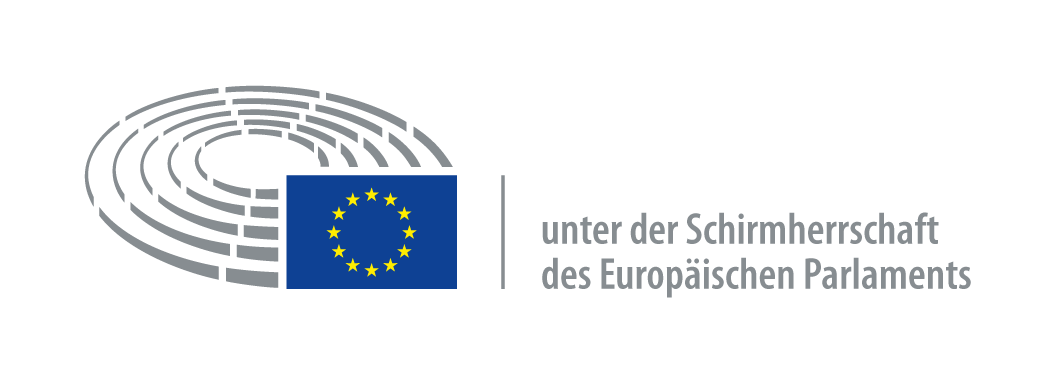Von den Erinnnerungen vom Roma-Holocaust zum europäischen Versöhnungsprozess
The project was implemented by the Documentation and Cultural Centre of German Sinti and Roma
The project «From Remembrance of the Roma Holocaust to a European Reconciliation Process» was funded with the support of the European Union under the Programme “Europe for Citizens” with the project number 601892-CITIZ-1-2018-1-DE-CITIZ-REMEM. The project was implemented from 01.09.2018 to 29.02.2020.
This project aimed to preserve the memory of the victims of the Holocaust by raising awareness about the Roma Genocide, the mechanisms of antisemitism and antigypsyism, to strengthen the engagement and participation of European citizens in the construction of values, culture, history and dialogue. As our European values and integration are fundamentally built on our historical experience and memory, our partnership aimed to shed light on the forgotten Roma genocide, the over 500.000 victims, and the continuation of antigypsyism and exclusion today.
In the past two years we have witnessed a dramatic increase of antigypsyist, antisemitic and racist hate speech and even hate crimes. Citizens from across Europe joined this initiative in order bring life to our culture of remembrance, to defend our European and democratic values, and to build an alliance that strongly resists against antigypsyism, and all forms of racism.
This project had a strong impact and visibility to advance the recognition of the Holocaust of Sinti and Roma across Europe, and to widely engage citizens, Roma communities, civil society, and high-level representatives of the EU, EU Member States and other International Organizations in the 75Das war für mich persönlich ein einzigartiger Moment, der mich in meinem Bestreben noch entschlossener machte, dafür zu sorgen, dass wir all derer gedenken, die unter dem Naziregime gelitten haben. Und dass wir nie wieder zulassen, dass so etwas jemals wieder geschieht! anniversary of the 2 August 2019 – the European Holocaust Memorial Day for Sinti and Roma. This was the largest and most recognized commemoration activity that was ever organized for this Memorial Day. This project significantly contributed that the formal recognition of this Memorial Day by the European Parliament resolution of 15 April 2015 was successfully integrated into the cultures of memory in our societies, and that it developed strong citizens-driven initiatives across Europe.
The project activities included the high-level international conference and commemoration event at the Auschwitz Memorial Site and in Krakow on the occasion of the 2 August Memorial Day, as well as a high-level international conference on Truth and Reconciliation as the core of the EU Roma Week in the European Parliament in Brussels in March 2019, and an international meeting of experts and educators that led to the development and publishing of educational tools in order to strengthen the role of young people in remembrance activities.
The project contributed to the EU policy-making process for an EU Roma Strategic Framework for Equality, Inclusion and Participation for 2020-2030, which was published by the European Commission in Oct 2020. The new strategic framework specifically highlights the importance of the recognition of the Roma Holocaust also by the Member States, defines the fight against antigypsyism as a specific form of racism and as the starting point for all measures and programs to advance equality and inclusion, and last but not least the Commission guidelines recommend the establishment of Truth, Recognition and Reconciliation processes, as promoted by this project. Similar initiatives for recognition have also reached success on national level, and processes and structures for reconciliation were advanced in several countries.
This project involved over 1.000 Roma and non-Roma citizens from over 16 European countries directly in 2 European conferences in Belgium and Poland and an international expert meeting in Germany. Additionally, a wide European grassroots campaign for the 75th anniversary of the Remembrance Day was reaching out to over 5.000 citizens indirectly with local events and through online, social and mainstream media to over 100.000 people. The project produced several outputs, such as policy recommendations, advocacy guidelines for civil society and citizens’ initiatives, publications with awareness-raising tools, as well as videos, online tools and publications that increased the visibility of the project.
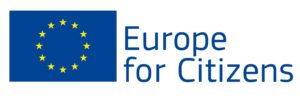
4 events have been carried out within this project:
Event 1: Alliance against Antigypsyism – Coalition meeting
Participation: The event involved 34 citizens, including 3 participants from the city of Brussels (Belgium), 4 participants from the city of Heidelberg (Deutschland), 2 participants from the city of Vilnius (Lithuania), including 2 participants from the city of Budapest (Hungary), including 1 participant from the city of Tirana (Albania), including 1 participant from the city of Kratovo (North Macedonia), including 3 participants from the city of Barcelona (Spain), including 2 participants from the city of Paris (France), 2 participant from the city of Haarlem (Netherlands), including 3 participant from the city of Vienna (Austria), including 1 participant from the city of Krakow (Poland), including 1 participant from the city of Dublin (Ireland), including 3 participants from the city of Rome (Italy), 2 participants from the city of Bukarest (Romania), 2 participants from Sofia (Bulgaria), 2 participants from Bratislava (Slovakia).
Location / Dates: The event took place in Brussels, Belgium, from 19/12/2018 to 21/12/2018
Short description: The aim of the event was to strengthen our partnership within the Alliance against Antigypsyism, to set up a steering team and to share tasks and responsibilities, as well as to jointly define a strategic plan for awareness-raising, advocacy, communication and dissemination activities for this project, in particular regarding the upcoming international high-level events and remembrance activities. Outcomes of the meeting were the strengthening of an informal civil society coalition (Alliance against Antigypsyism), a draft policy paper (Towards a European Remembrance and Reconciliation Process) to advocate for the recognition of Holocaust and the fight against antigypsyism with a strong perspective on advancing truth and reconciliation processes.
Event 2: Expert Meeting on awareness-raising activities for Holocaust remembrance
Participation: The event involved 65 citizens, including 4 participants from the city of Tirana (Albania), 5 participants from the city of Brussels (Belgium), 4 participants from the city of Paris (France), 4 participants from the city of Budapest (Hungary), 3 participants from the city of Milan (Italy) , 4 participants from the city of Vilnius (Lithuania) , 6 participants from the city of Kratovo (North Macedonia), 4 participants from the city of Heidelberg (Deutschland), 3 participants from the city of Berlin (Deutschland), 4 participants from Bratislava (Slovakia), 3 participants from the city of Dublin (Ireland), 3 participants from the city of Haarlem (Netherlands), 5 participants from the city of Krakow (Poland), 6 participants from the city of Bukarest (Romania), 3 participants from the city of Sofia (Bulgaria), 3 participants from the city of Valencia (Spain), including 2 participants from the city of Vienna (Austria).
Location / Dates: The event took place in Berlin, Germany, from 27.02.2019 to 03.03.2019
Short description: The aim of the event was to bring together 50 participants from 16 countries in Berlin to share experiences between citizens, educators and experienced experts that are strongly engaged in awareness-raising activities for Holocaust remembrance, as well as to advance a long-term networking between Roma, Jewish, anti-Racism and other youth and human rights organizations. The outcomes included the development of an educational curriculum and activity plan for the context of the 2 August memorial day, the development of policy recommendations, and a selection of best practices from partners. The activities included a meeting with the German special envoy on Holocaust remembrance, visits and reflections about the Holocaust memorials in Berlin, and meeting with various stakeholders (EVZ Foundation, Education Forum against Antigypsyism, ERIAC).
Event 3: International Conference “From Remembrance to Reconciliation”
Participation: The event involved 143 citizens, including 65 participants from the city of Brussels (Belgium), 7 participants from the city of Heidelberg (Deutschland), 4 participants from the city of Berlin (Deutschland), including 3 participants from the city of Budapest (Hungary), including 3 participants from the city of Tirana (Albania), including 4 participant from the city of Kratovo (North Macedonia), including 2 participants from the city of Barcelona (Spain), 2 participants from Madrid (Spain), 9 participants from the city of Paris (France), 7 participants from the city of Vienna (Austria), including 3 participants from the city of Krakow (Poland), including 2 participants from the city of Dublin (Ireland), including 4 participants from the city of Rome (Italy), 7 participants from the city of Bukarest (Romania), 1 participant from Timisoara (Romania), 4 participants from the city of Budapest (Hungary), 4 participants from Sofia (Bulgaria), 4 participants from Kosice (Slovakia), 3 participant from the city of Vilnius (Lithuania), 3 participants from the city of Amsterdam (Netherlands), 3 participant from the city of Leeuwarden (Netherlands).
Location / Dates: The event took place in Brussels, Belgium, from 20/03/2019 to 21/03/2019
Short description: The aim of the event was to strengthen the coalition-building process of the Alliance against Antigypsyism (with over 75 participants from 20 countries) and the advocacy for recognition and reconciliation. By building a partnership with MEPs, UN, various civil society stakeholders, we brought our main advocacy goal into the core of the EU Roma Week in the European Parliament in March 2019, in particular with the conference “Creating Trust through Uncovering and Recognising the Truth: Advancing Recognition and Remedy for Antigypsyism” (involving over 300 participants+livestream), and with the high-level “European Civil Rights Award of Sinti and Roma” that was given to Slovak President Kiska (over 150 participants+livestream). The conference became a key reference point to advance TRC processes which were addressed as a recommendation by the EC post-2020 EU Roma strategic framework.
Event 4: International Conference for the 75th anniversary of the Roma Holocaust Memorial Day
The event involved 572 citizens, including 35 participants from the city of Brussels (Belgium), 7 participants from the city of Mechelen (Belgium), 5 participants from the city of Antwerpen (Belgium), 23 participants from the city of Heidelberg (Germany), 15 participants from the city of Berlin (Germany), 18 participants from the city of Budapest (Hungary), 7 participants from the city of Szeged (Hungary), 2 participants from the city of Tatabanya (Hungary), 23 participants from the city of Tirana (Albania), 6 participants from the city of Kratovo (North Macedonia), 25 participant from the city of Skopje (North Macedonia), 53 participants from the city of Barcelona (Spain), 15 participants from the city of Madrid (Spain), 4 participants from the city of Barcelona (Spain), 1 participant from the city of Tarragona (Spain), 12 participants from the city of Linas-Montlhéry (France), 19 participants from the city of Paris (France), 32 participants from the city of Vienna (Austria), 30 participants from the city of Krakow (Poland), 10 participants from the city of Warsaw (Poland), 2 participants from the city of Poznan (Poland), 28 participants from the city of Dublin (Ireland), 6 participants from the city of Galway (Ireland), 26 participants from the city of Rome (Italy), 6 participants from the city of Milan (Italy), 10 participants from the city of Bukarest (Romania), 4 participants from the city of Cluj (Romania), 12 participants from the city of Resita (Romania), 3 participants from the city of Timisoara (Romania), 24 participants from Sofia (Bulgaria), 10 participants from Kamen (Bulgaria), 12 participants from Kosice (Slovakia), 25 participants from Bratislava (Slovakia), 32 participant from the city of Vilnius (Lithuania), 7 participants from the city of Amsterdam (Netherlands), 24 participants from the city of Leeuwarden (Netherlands),
Location / Dates: The event took place in Krakow, Poland, from 31/07/2019 to 02/08/2019
Short description: The conference in Krakow involved over 500 participants in conference panels, workshops, artistic events and exhibitions, as well as over 2.000 participants in the official commemoration ceremony for the 2 August memorial day. High-level speakers included civil rights activist Jesse Jackson, several Holocaust survivors and representatives of governments and international organizations (EC Vice-President Jourova) that engaged in dialogue with citizens from across Europe about Holocaust recognition, remembrance and reconciliation. This memorial day strengthened the citizens-driven initiatives for remembrance to establish 2 August across Europe, and made the day widely visible on all media channels.
Additional Activity: The conferences were accompanied by a transnational awareness-raising campaign between 27.01. and 02.08.2019 addressing Holocaust remembrance, recognition of antigypsyism, reconciliation in present. The campaign increased the media visibility of 2 August and the project, mobilized for local and national offline and online actions days (8 April, 16 May, 2 Aug), and reached out to over 100.000 people.
Dikh He Na Bister - Bildungsveranstaltugen
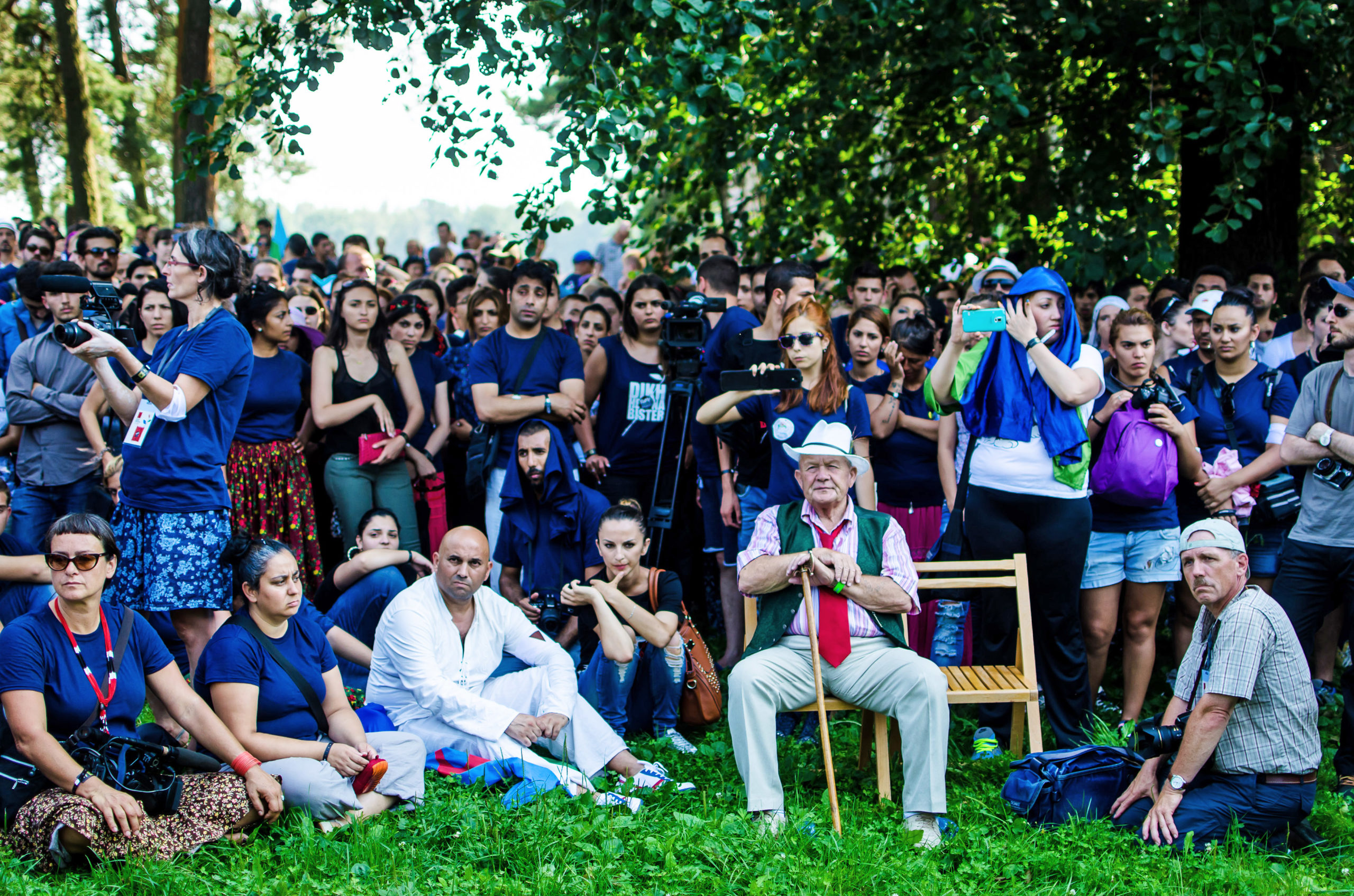
“DIKH HE NA BISTER!”
Internationale Jugenderinnerungsveranstaltung
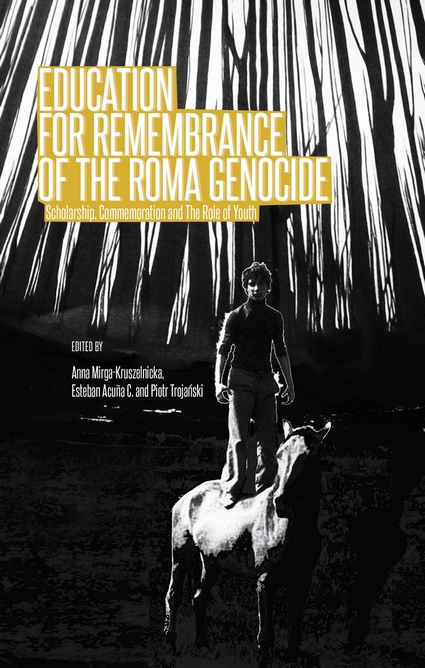
Bildung zur Erinnerung an den Genozid an den Roma
Stipendium, Gedenken und die Rolle der Jugend, Publikation
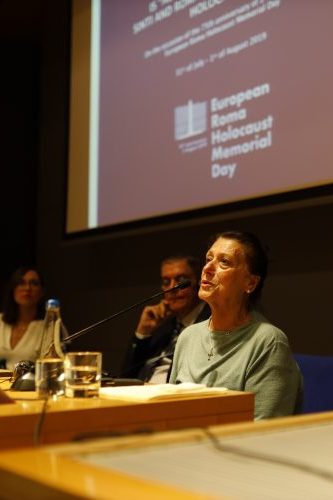
Ist "Auschwitz nur am Schlafen"?
Internationale Konferenz (2019) zu den Erzählungen der Sinti und Roma über den Holocaust
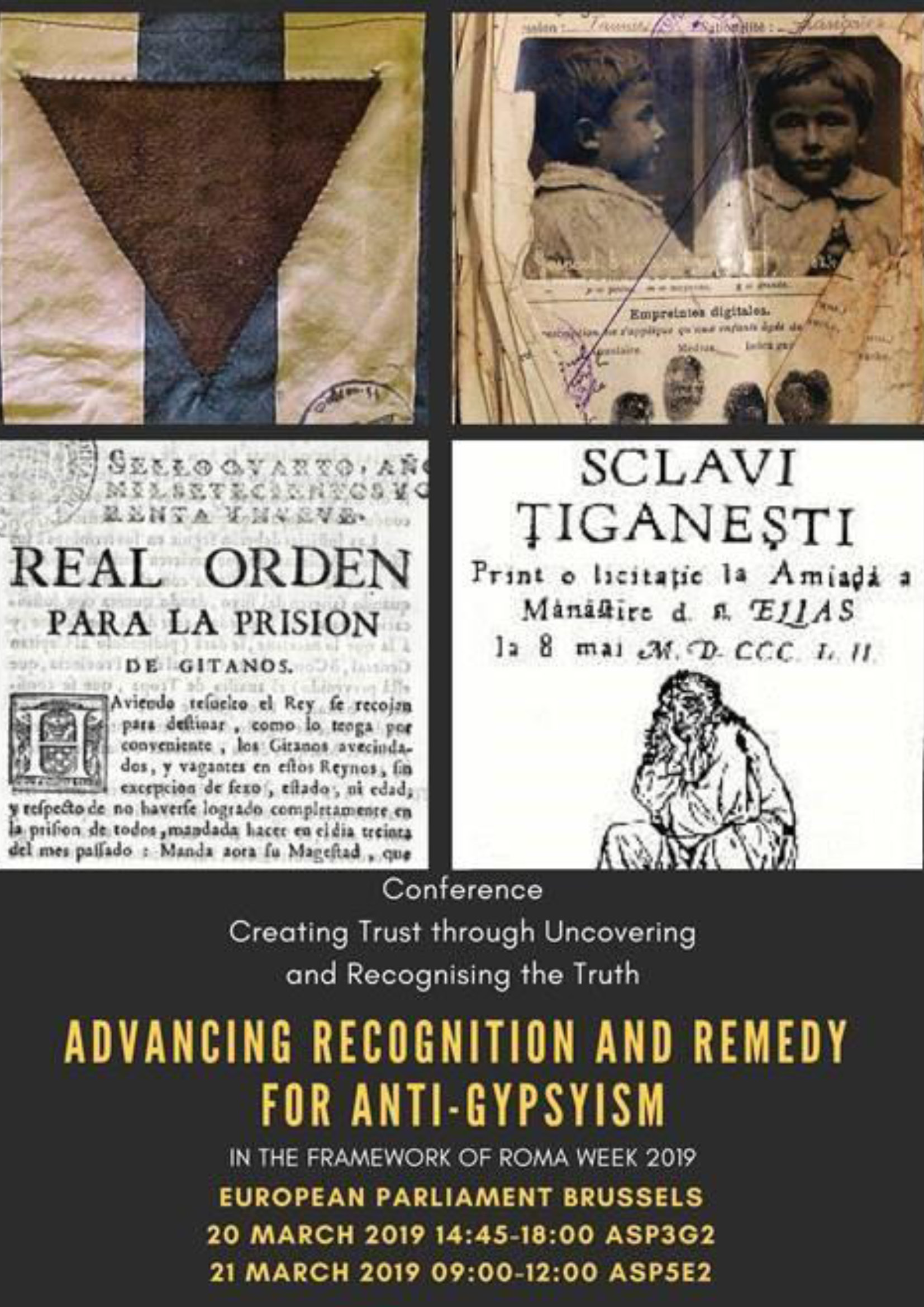
Von den Erinnnerungen vom Roma-Holocaust zum europäischen Versöhnungsprozess
Projektbeschreibung
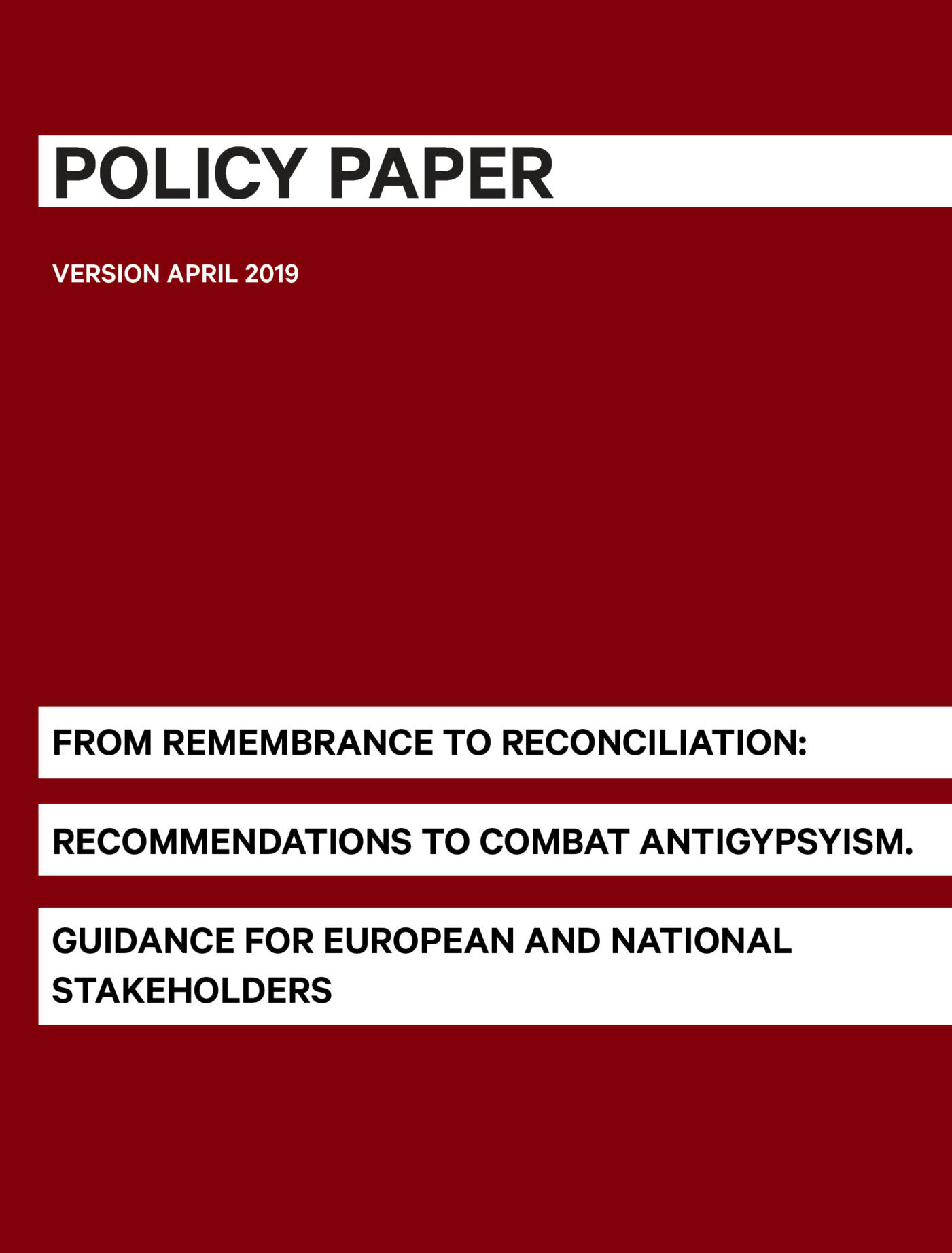
Expertentreffen zur Holocaust-Bildung
Berlin, March 2019




